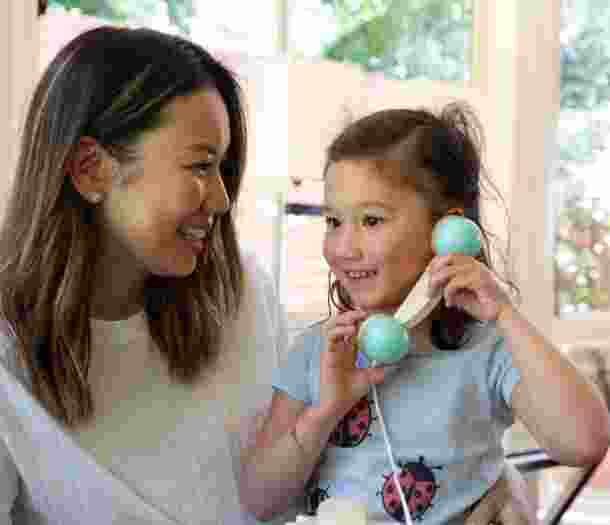On this page:
What is Orientation and Mobility for Children?
From an early age we learn to interact with the world through safe play, observations and exploring new environments. We learn about ourselves, each other, and how to be part of a community, while developing confidence as we grow.
Children with low vision or blindness are no different. However, they need to develop a varied set of skills to understand and move through the world.
These skills are taught in our Early Childhood Orientation and Mobility Services designed for children aged 0-8 years where our specifically trained Early Childhood trained Orientation and Mobility Specialist works collaboratively with you and the child’s support network.
School aged children need to develop their awareness of environments and travel skills, confidence, and independence to be an active part of the school and local community. It is important for young people aged 9-18 years to focus on their Orientation and Mobility goals as well as academic goals.
School aged focus Orientation and Mobility enhances your child’s independence and can improve their confidence at school, at home, in the community, and even as teens transition into young adulthood.
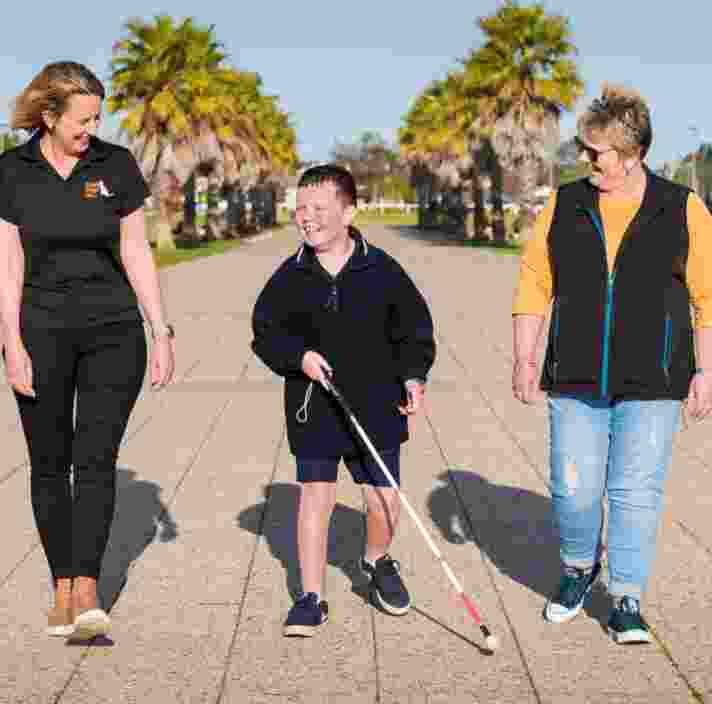
What kind of skills can my child learn through Orientation and Mobility?
Your child can learn valuable techniques to support them and you as parents to achieve your family goals, such as:
- Developing a sense of self: Including skills to understand their own body, how it moves through space and how they can use their body to interact with the environment around them.
- Building relationships: Including skills to make new friends and interact with other people in the community.
- Travelling safely: Including skills to move independently, catch public transport and use of mobility aids, like long canes, and GPS devices to travel with confidence.
- Strategies for education facilities: Including skills to navigate the school environment or tertiary campus, development of mapping concepts, and inclusion in sport curriculum.
- Preparing for adulthood: Including skills to shop for groceries, cook basic meals, prepare for working life and learn independent thinking and problem-solving skills.
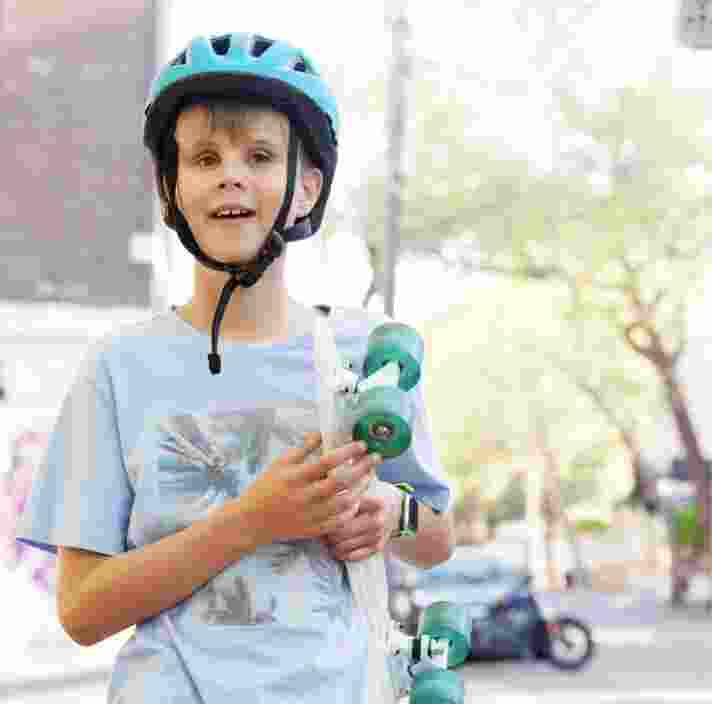
What does service delivery involve?
At Guide Dogs NSW/ACT all Children Orientation and Mobility service delivery is designed with a focus on engagement and fun, to support the unique needs and goals of your child and your family. Just as kids quickly grow to meet new challenges or embrace new experiences, our programs do the same, reflecting the age and skill level of the individual child.
In our Early Childhood Orientation and Mobility service, play-based learning is used to facilitate the learning of new concepts and skills. Information gathering and intervention phases of service delivery are integrated into the daily routines of your child and family, depending on their goals. Coaching is used to build your capacity to support your child’s skill development during these daily routines.
Orientation and Mobility service delivery can occur where your child is most comfortable, whether it be in your home, at school, or out and about in the general community.
All programs use a transdisciplinary approach where our Orientation and Mobility Specialists engage in active collaboration with your child, your family and the team of professionals providing you support. This ensures a holistic approach to facilitate your child’s development and goal achievement.
All our Early Childhood Orientation and Mobility Specialists are trained in Cerebral Vision Impairment (CVI) and can provide your child with functional O&M screening assessment for CVI characteristics to assist you with your child formal CVI diagnosis.
Our Childrens Orientation and Mobility Services support your child through their entire childhood, from birth through to 18, introducing different techniques and mobility aids when they become relevant. We offer individual training programs, group programs and workshops. These teach your child valuable skills while encouraging them to enjoy themselves, make friends, be creative, and explore their potential as they transition to adulthood.
What funding can I use to receive Orientation and Mobility Services for my child?
Guide Dogs is a registered NDIS provider. This means many children can access services through their NDIS plan (for children aged 9 to 18 years old). If your child is aged 0-8 years Guide Dogs NSW/ACT can work with your Early Childhood Early Intervention Provider.
Find out more about funding programs and supports.
We understand that sometimes children who need services may not be eligible to receive government funding. If your child has low vision or blindness and you do not have access to external funding, we will support your child to achieve their goals using funding provided by generous donations from the community.
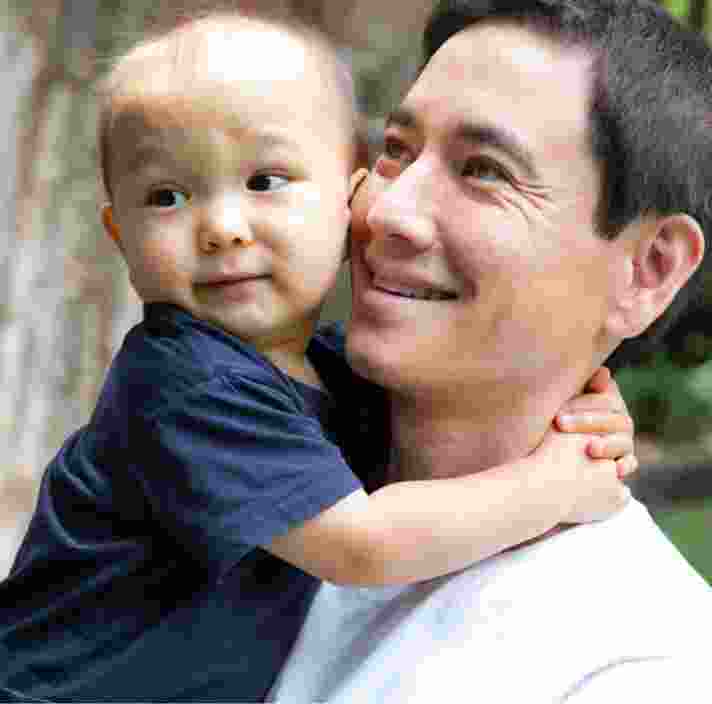
How do I find out more?
Contact us for further information.
We welcome referrals and enquiries from individuals, families, health professionals and community organisations.
To find further information about our Orientation and Mobility Services for children, you can:
We welcome referrals and enquiries from individuals, families, health professionals and community organisations.
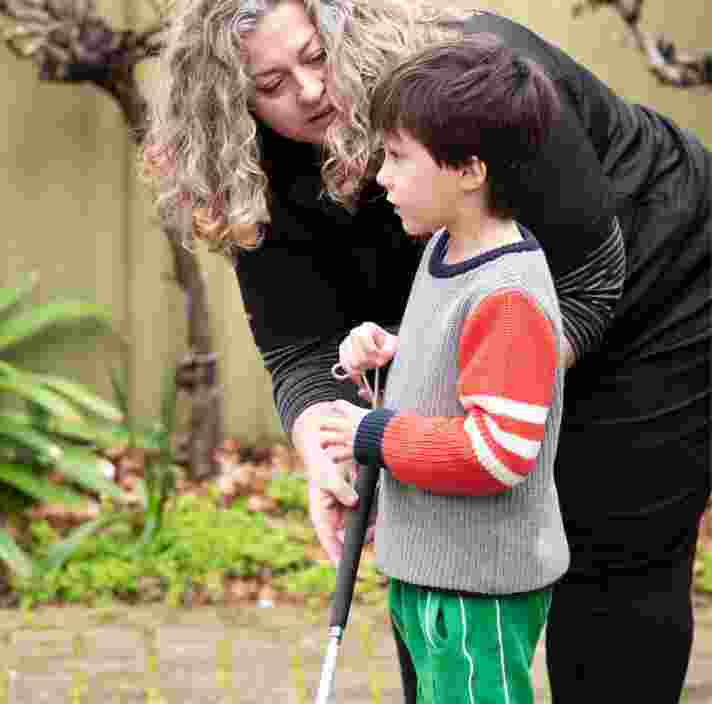
Enquire about this service
Start the journey towards greater independence today
Ready to continue?
Seems like you have filled this form earlier. Let’s pick up where you left off.
